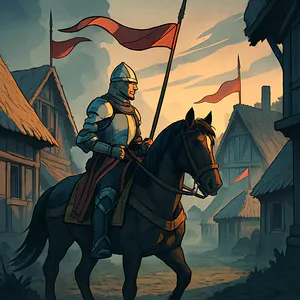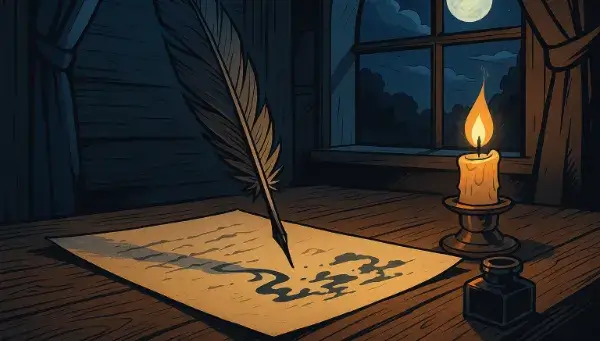Generate Norman names
More Real Name Generators- <% result.name %>
Discover all Story Shack apps
Discover the Essence of Your Norman Character
Creating a memorable Norman character starts with a name that resonates with their identity and background. Use these questions to inspire unique names that reflect their heritage and personality.
- What historical events or figures influence your character's identity?
- What traits or qualities do you want the name to convey?
- How does your character's name reflect their social status or profession?
- What cultural elements or traditions should be represented in the name?
- What emotions or themes do you want the name to evoke in your audience?
Frequently Asked Questions
Here are some common questions about the Norman Name Generator and how it can help you find the perfect name for your character.
How does the Norman Name Generator work?
It randomly combines elements from Norman history, culture, and linguistics to create unique names with each click.
Can I specify the type of name I want?
Currently, you can't specify; however, you can generate names until you find one that perfectly fits your character.
Are the names unique?
The names are randomly generated; with unlimited clicks, you'll discover a diverse array of options, though some may be similar.
How many names can I generate?
You can generate an unlimited number of names; simply click 'Generate' as many times as you like.
How do I save my favorite names?
You can copy a name instantly by clicking on it, or use the heart icon to save it for later reference.
What are good Norman names?
There's thousands of random Norman names in this generator. Here are some samples to start:
- Eudes Osmont
- Pierrot Le Doulcet
- Martîn Burce
- Rotbert Quincarnon
- Étienne Quincarnon
- Damete Le Tellier
- Muriel Gascoignes
- Euphrosène de Civille
- Modeste Brinon
- Suzanne Louis
About the creator
All idea generators and writing tools on The Story Shack are carefully crafted by storyteller and developer Martin Hooijmans. During the day I work on tech solutions. In my free hours I love diving into stories, be it reading, writing, gaming, roleplaying, you name it, I probably enjoy it. The Story Shack is my way of giving back to the global storytelling community. It's a huge creative outlet where I love bringing my ideas to life. Thanks for coming by, and if you enjoyed this tool, make sure you check out a few more!


























































